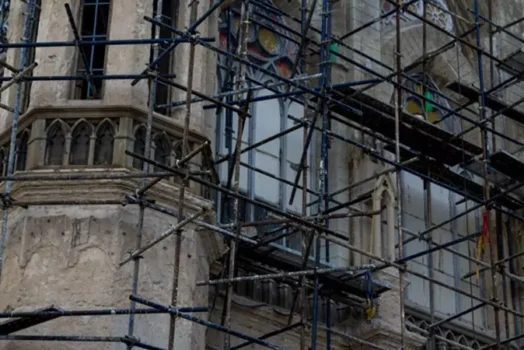Structural safety and integrity are the strong pillars of any building, and when issues arise, choosing the right structural repairs contractor becomes crucial. Whether you are a homeowner in need of foundation repairs or a business owner requiring commercial building maintenance, selecting the right contractor is what you need. In this comprehensive guide, we will take you through a step-by-step process to help you make an informed choice when selecting a structural repairs contractor for your building repair services.
Step 1: Identifying the Issue
Before you begin your journey to find the right structural repairs contractor, you must first understand if there is any problem in your structure. Structural issues can vary, from foundation problems and cracks in walls to sagging floors. Identifying the specific problem is the first step toward a successful repair project.
Step 2: Research and Gather Recommendations
- Ask for Recommendations: Ask your friends, family, and neighbors for recommendations for structural repair contractors. They may have faced similar structural issues and they can provide valuable information. Their experiences with contractors can guide you in the right direction.
- Online Research: Take the help of the internet by referring to trusted sources. Use search engines and online platforms to find local structural repair contractors with good reviews and ratings.
Step 3: Verify Licensing and Insurance
You must ensure that the contractor is licensed and properly insured to protect yourself and your property. Be sure to:
- Verify the contractor’s license to perform structural repairs in your area. Check with your local licensing authority for confirmation.
- Confirm that the contractor has both liability insurance and worker’s compensation. This safeguards you in case of accidents or damages during the project.
Step 4: Request Multiple Quotes
Once you have listed a few potential contractors, it’s time to gather quotes. Request detailed quotes that include:
- The scope of work
- Materials to be used
- Labor costs
- Project Timeline
You should keep in mind that the lowest price isn’t always the best choice. High-quality work often comes with a higher cost, and it’s essential to balance cost with quality and reputation.
Step 5: Check References
A reputed contractor should be willing to provide a list of references and ongoing projects. Reach out to these references and ask questions about their experience with the contractor:
- Did they complete the project on time and on budget?
- Was the quality of work satisfactory?
- Were there any issues or concerns during the project?
Step 6: Verify Experience and Expertise
Not all structural repairs are the same. Some contractors may specialize in foundation repairs for example Tower Foundation or Shed Foundation, while others in fixing wall cracks. Choose a contractor with experience in the specific issue that you are dealing with. Specialization often leads to a more tailored and effective solution.
Step 7: Visit Completed Projects
Whenever possible, visit completed projects or ongoing sites that the contractor is working on. This allows you to see the quality of their work, professionalism, and work ethics.
Step 8: Review Contracts
Before making a final decision, carefully review the contract offered by each contractor. Ensure the contract includes:
- A detailed scope of work
- Payment schedule
- Project Timeline
- Warranties or guarantees
Never sign a contract without fully understanding its terms. If in doubt, consult with a legal professional.
Step 9: Ask about Permits and Inspections
Your chosen contractor should be well-versed in local building codes and the necessary permits and inspections required for your project. Compliance with regulations is essential for a successful and legal structural repair project.
Step 10: Effective Communications
Open and effective communication with your contractor is key for your project. Pay attention to how well you connect with the contractor and whether they answer your questions clearly and comprehensively. Also, you must choose a contractor you feel comfortable working with.
Step 11: Check for Complaints
Perform a background check on the contractor. Search for any complaints or legal issues related to the contractor with your local consumer protection agency. This step is crucial for avoiding potential problems and unnecessary headaches in the future.
Step 12: Request a Project Timeline
An important aspect of your repair and maintenance project is the timeline. Request a clear project timeline with events to track the progress. This helps ensure that the project stays on schedule and on track.
Step 13: About Payment Schedule
A fair payment schedule should be mentioned in the contract. This includes an initial deposit and following payments based on the flow of the project. Be cautious of contractors demanding a large advance payment.
Step 14: Formalize Agreements in Writing
Never rely on verbal agreements. Always ensure that all project changes are documented in writing to avoid misunderstandings and disputes.
Step 15: Local Regulations and Laws
Ensure that your chosen contractor complies with local laws and regulations, including permits, inspections, and safety measures.
Conclusion
Selecting the right structural and building repair contractor is always an important decision that can greatly impact the safety and longevity of your property. At Gubbi Civil Engineers, India’s leading contractor and service provider for structural repairs and commercial repairs, we understand the importance of this decision. We take pride in offering the best structural repair and commercial building maintenance services to our clients. By following this detailed step-by-step guide, you can make an informed decision that ensures your project is handled professionally and effectively. Remember, choosing the right contractor is an investment for your property’s future.




